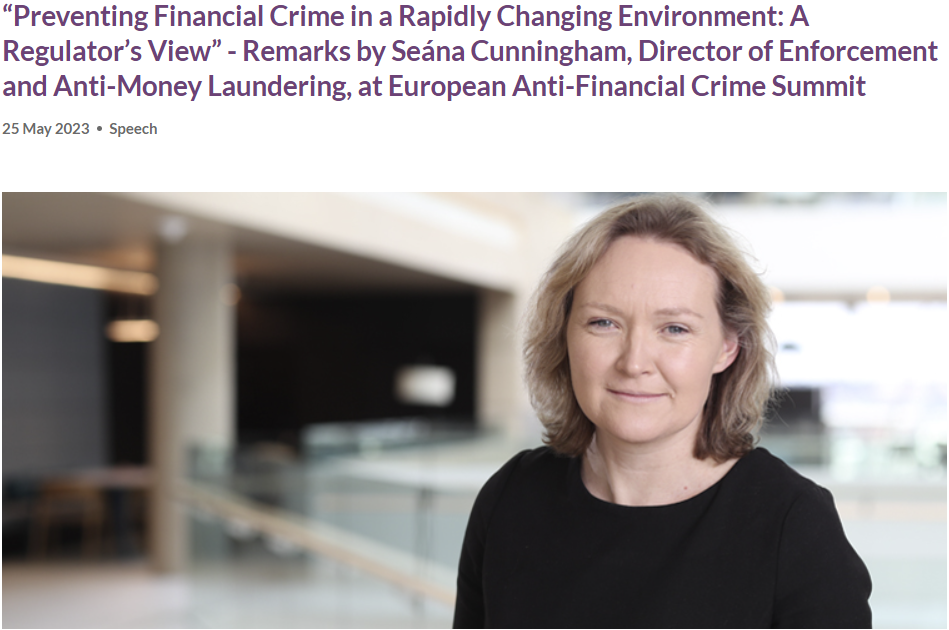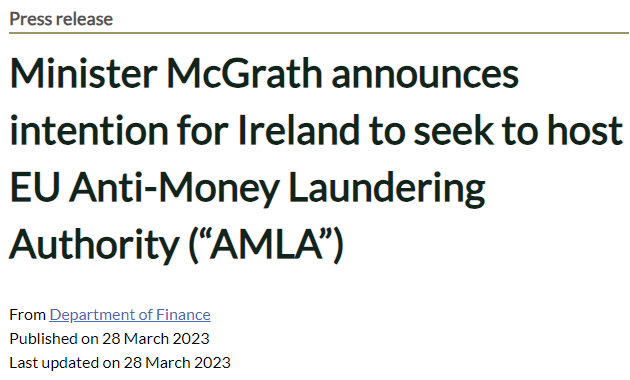Globally we are seeing some states like Hong Kong, UAE and the UK all announcing banks, enforcement and regulators combining forces to have a more collaborative approach to the joint battle. Ireland only having three (3) banks would suggest that more collaboration across these banks is a logical approach. While we can appreciate the restrictions of ‘over sharing’ due to GDPR restrictions, there must be an argument for sharing intelligence of high-risk economic crime activity across our society’s first line of defence in protecting the integrity of our financial system.
The benefits of this collaborative approach to protect the risk of suspicious activity surely outweighs the paranoia.
But what about the FinTechs in Ireland?
So, why not act locally within Ireland and drive more collaboration within the State as well?
International companies such as R3, Remitly, S&P Global, Revolut, MoneyCorp, and Boku have made Ireland the hub of their operations. These institutions are growingly coming under the watchful eyes of regulators due to the growth in bad actors using FinTechs and Payment Companies to channel illicit funds into the financial system. These companies should definitely have a more active role in the battle to combat financial crime activity.
there is more responsibility that these high-growth institutions should adopt in protecting the integrity of the financial services system
While BPFI have been instrumental in driving more collaboration, there are limitations given not all Banks and FinTech’s are actively involved in this joint effort. But it doesn’t stop there. In a recent article posted by Pearse Doherty, Deputy Leader (Dáil), Spokesperson on Finance and Public Expenditure and Reform, Pearse calls for more accountability for telecommunications and internet service providers and even social media. Usually when fraudulent activity occurs through these channels, the customer is already exposed, and the damage is done. This clearly shows that there is a need in Ireland for the wider cross-checking of account information which has proved to be successful in the Netherlands and Britain.
Ireland has become a global hub for FinTechs and Payment Companies alike and while this is fantastic for FDI and overall economic growth of the nation, there is more responsibility that these high-growth institutions should adopt in protecting the integrity of the financial services system. The banks in Ireland, coupled with the FinTechs and Payment Companies, Regulators and Enforcement, can and will position Ireland as one of the safest countries to conduct transactions. Thus, setting the stage for further growth in a socially responsible and compliant manner.
The contents of this article are those of the author, Amardeep (Deep) Hansra, Global FinTech and RegTech professional. Deep is on the Fintech Ireland Advisory Council.
END
- Fintech Ireland’s Founder Peter Oakes was a member of a cryptoasset panel at ACAMS Europe and also joined the ACAMS Great Crypto Debate on: The Future of Finance or Unleashing Havoc.
- Fintech Ireland supports MoneyLaundering.ie which collates and publishes useful financial crime typologies
- Minister McGrath announces intention for Ireland to seek to host EU Anti-Money Laundering Authority
- Previous guest blog – Ireland’s VASPs holding their own against the UK? The Virtual Asset Service Providers Landscape in Ireland (co-authored by Susan O’Neill of SuLu Solutions and Peter Oakes of Fintech Ireland)


